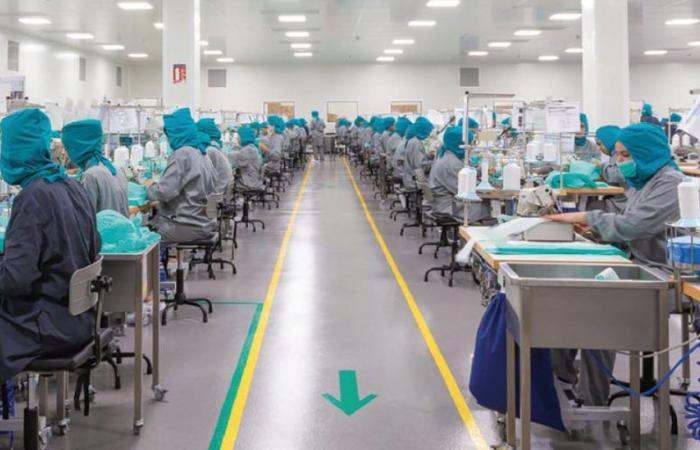The Moroccan Economic Outlook Center has just unveiled its latest monthly issue, “Maroc Conjoncture.” A focus on economic transformation and the jobs of tomorrow. This report offers a deep dive into the profound changes shaping the Moroccan and global economy.
The Moroccan Economic Outlook Center has just published its latest monthly issue, “Maroc Conjoncture”, a special issue dedicated to economic transformation and the jobs of tomorrow. This report, which offers an in-depth analysis of the current economic situation in Morocco and around the world, explores the challenges and opportunities that lie ahead for the future of the Moroccan labor market.
Global economy: a cautious but uncertain recovery
The report begins by painting a picture of the global economy, which is characterized by cautious optimism. Despite the tightening of monetary policies, growth is accelerating moderately and inflation is falling more quickly than expected.
However, this recovery is uneven, with the United States and some large emerging countries posting strong growth, while European economies are struggling to keep pace. Risks to the economic outlook remain numerous. Geopolitical tensions, particularly in the Middle East, could disrupt energy markets.
The fiscal situation in many countries is worrying, and growth prospects remain weak in some regions. In the face of these challenges, the report highlights the importance of adopting growth-enhancing structural reforms, strengthening productivity and global trade, and investing in artificial intelligence, the green economy and education.
Morocco’s 2024 Budget: Between Recovery and Consolidation
The national budget for 2024 reflects the challenges facing the country. After a period of economic slowdown, budgetary choices have focused on consolidating economic activity. Priorities include rebuilding the disaster-stricken Al Haouz region and expanding access to the social protection system.
The budget also provides for strengthening investments in the public sector and improving the business climate to stimulate private initiative.
However, the implementation of these actions will require the mobilization of significant resources, which could have an impact on the balance of public accounts. Nevertheless, the execution of the budget over the first four months of the financial year seems, for the moment, to be in line with initial projections.
Foreign trade: Encouraging signs
The report highlights an improvement in Morocco’s external accounts for over a year, despite an unstable economic context. The recovery in export activities, combined with a drop in imports, has led to a significant improvement in the trade balance and the coverage rate. Data for the first quarter of 2024 seem to confirm this positive trend.
Investment and job creation: Ambitious reforms
Morocco has made significant progress in improving the business climate and encouraging investment over the past two decades. The new Investment Charter, adopted in 2022, aims to maximize economic impacts, particularly in terms of creating stable jobs and equitable development of territories. It offers a series of bonuses and benefits intended to stimulate private investment.
The Moroccan economy is undergoing a profound transformation that is influencing the typology of available jobs. New professions are emerging in sectors such as renewable energies and the digital economy, requiring specific and advanced skills. These sectors offer real opportunities for young people and professionals in retraining.
Traditional sectors: pillars under pressure
Traditional sectors such as construction, agriculture and textiles remain essential to the Moroccan economy, due to their capacity to absorb a large part of the workforce. These sectors play a vital role in reducing poverty and improving living conditions, particularly in rural areas.
However, they face significant challenges, including the need to modernise production techniques, improve working conditions and adapt to the demands of a globalised market. The report also addresses the issue of wage increases in an uncertain economic context.
This revaluation represents a partial recovery of the loss of purchasing power, but its impact on costs remains limited. The document underlines that world economies have entered a new era, characterized by increased instability and less predictable economic relations.
Mehdi Idrissi / ECO Inspirations






